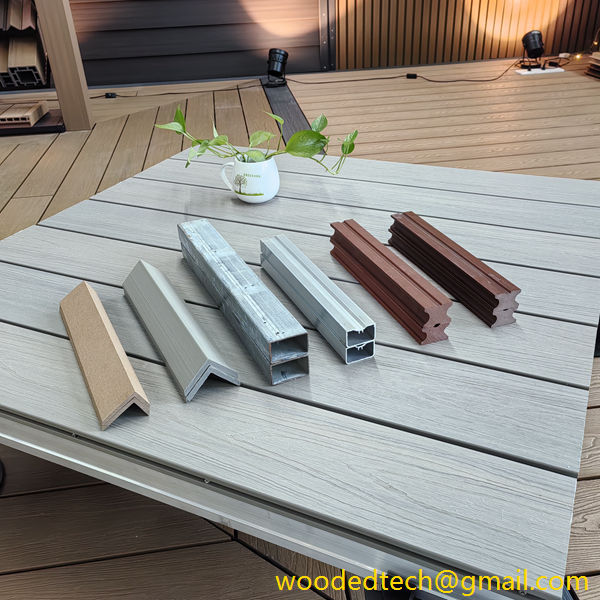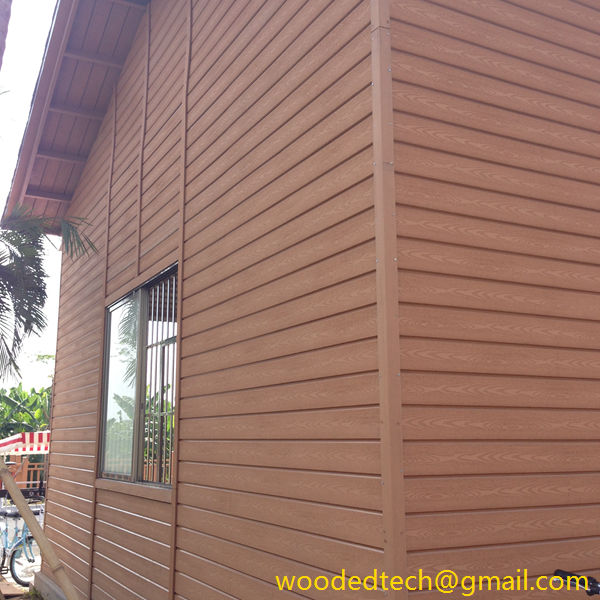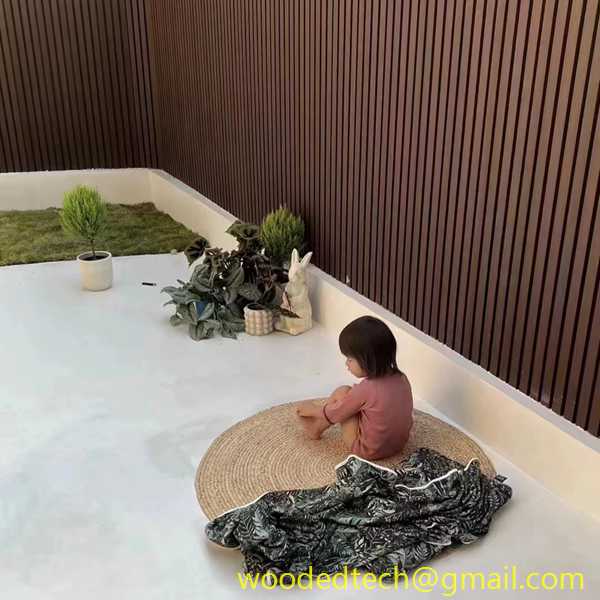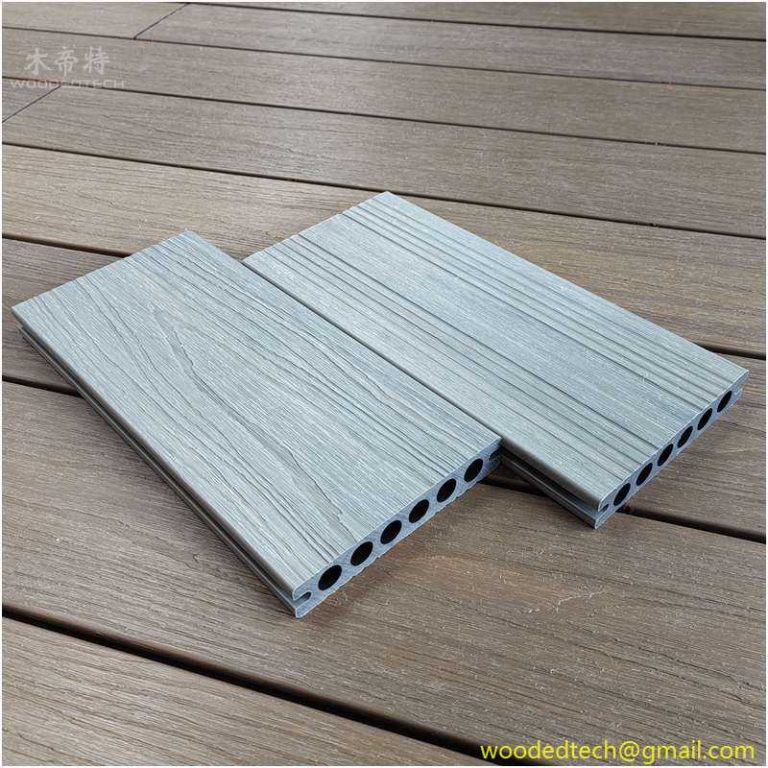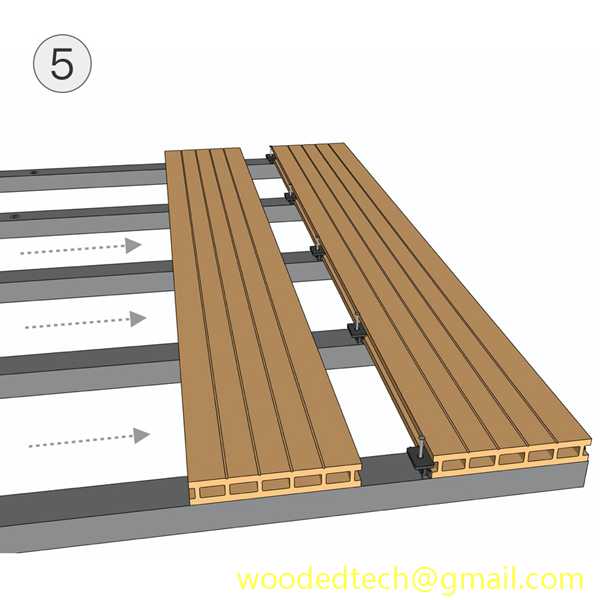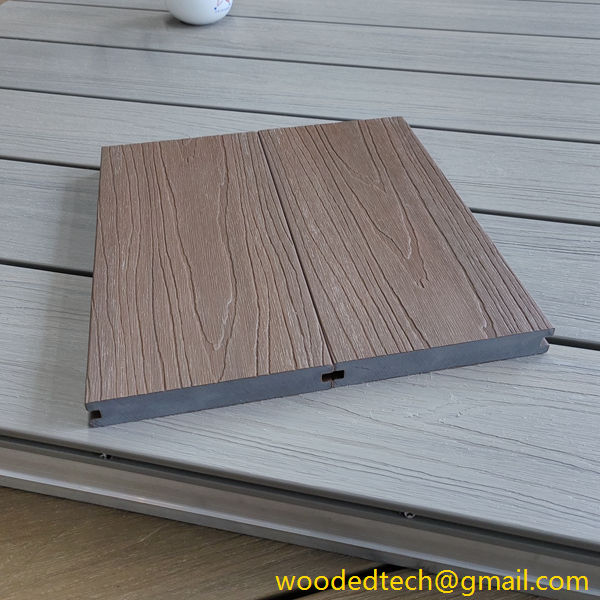Selection and application of Decking composite joists: analysis of steel joists, aluminum joists, plastic wood joists, and log joists
In the field of contemporary architecture and decoration, Decking composite has been widely used due to its environmental protection, beauty, and durability. In the installation process of Decking composite, joists play a vital role. This article will focus on the selection and application of Decking composite joists, and analyze in detail the characteristics and applicable scenarios of steel joists, aluminum joists, plastic wood joists, and log joists to help readers better understand and select suitable joists.

I. Classification and characteristics of Decking composite joists
1. Steel joists

Steel joists are a type of joists made of high-quality steel with high strength and stability. Its characteristics are as follows:
(1) Strong load-bearing capacity: Steel joists have a high load-bearing capacity and are suitable for large venues, high-rise buildings and other scenes with high load-bearing requirements.
(2) Good fire resistance: Steel joists are not easy to burn and have good fire resistance.
(3) Corrosion resistance: The surface of steel joists has been treated with anti-corrosion treatment and has strong corrosion resistance.
2. Aluminum joists
Aluminum joists are joists made of aluminum alloy as the main raw material, with the following characteristics:
(1) Lightweight and high strength: Aluminum joists are light in weight but high in strength, easy to install and carry.
(2) Beautiful and durable: Aluminum joists have a smooth surface, beautiful color, strong oxidation resistance and long service life.
(3) Environmental performance: Aluminum joists can be recycled and meet green environmental protection requirements.
3. Plastic wood joists

Plastic wood joists are joists made of plastic wood composite materials, with the following characteristics:
(1) Environmental performance: Plastic wood joists are made of environmentally friendly materials, no pollution, no odor.
(2) Corrosion resistance: Plastic wood joists have good corrosion resistance and are suitable for humid environments.
(3) Easy installation: Plastic wood joists are light in weight and easy and quick to install.
4. Log joists
Log joists are joists made of natural wood and have the following characteristics:
(1) Natural texture: Log joists retain the natural texture of wood and have a natural texture.
(2) Thermal insulation: Log joists have good thermal insulation properties and are suitable for cold areas.
(3) Easy processing: Log joists are easy to process and can be customized according to terrain requirements.
2. Selection and application of Decking composite joists
When selecting Decking composite joists, they should be reasonably selected according to different terrain requirements and scene characteristics.
1. Steel joists are suitable for large venues, high-rise buildings and other scenes with high load-bearing requirements, such as shopping malls, theaters, office buildings, etc.
2. Aluminum joists are suitable for humid environments such as outdoor, balcony, bathroom, and places with high requirements for anti-corrosion performance.
3. Plastic wood joists are suitable for indoor places such as homes, offices, hotels, and outdoor places with beautiful environments.
4. Log joists are suitable for places that pursue natural texture and thermal insulation performance, such as resorts, villas, etc.
III. Conclusion
The selection and application of Decking composite joists should be reasonably selected according to different terrain requirements and scene characteristics. Steel joists, aluminum joists, plastic wood joists, and log joists have their own characteristics and are suitable for different places. In practical applications, the most suitable joists material should be selected according to specific needs and combined with the performance of joists, providing strong guarantees for the installation and use of Decking composite.

